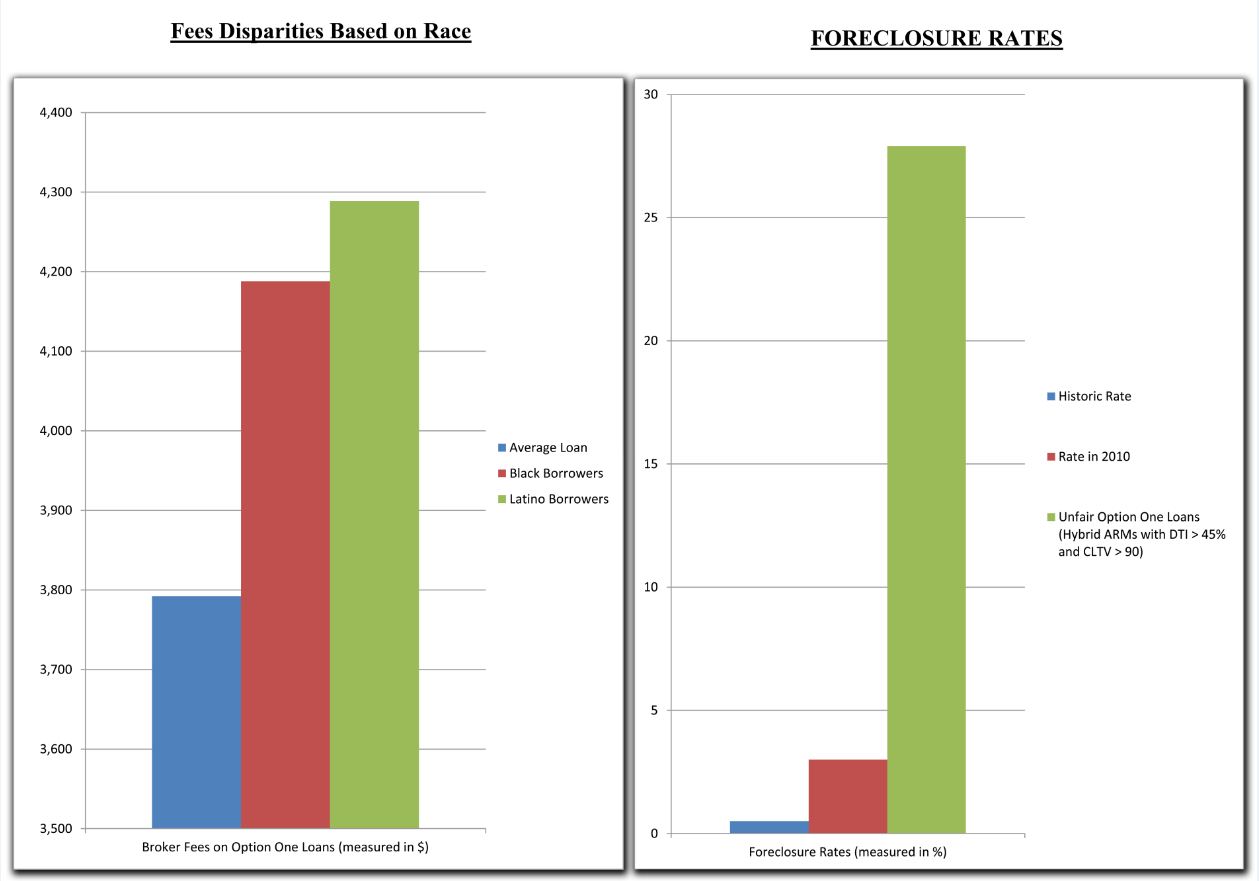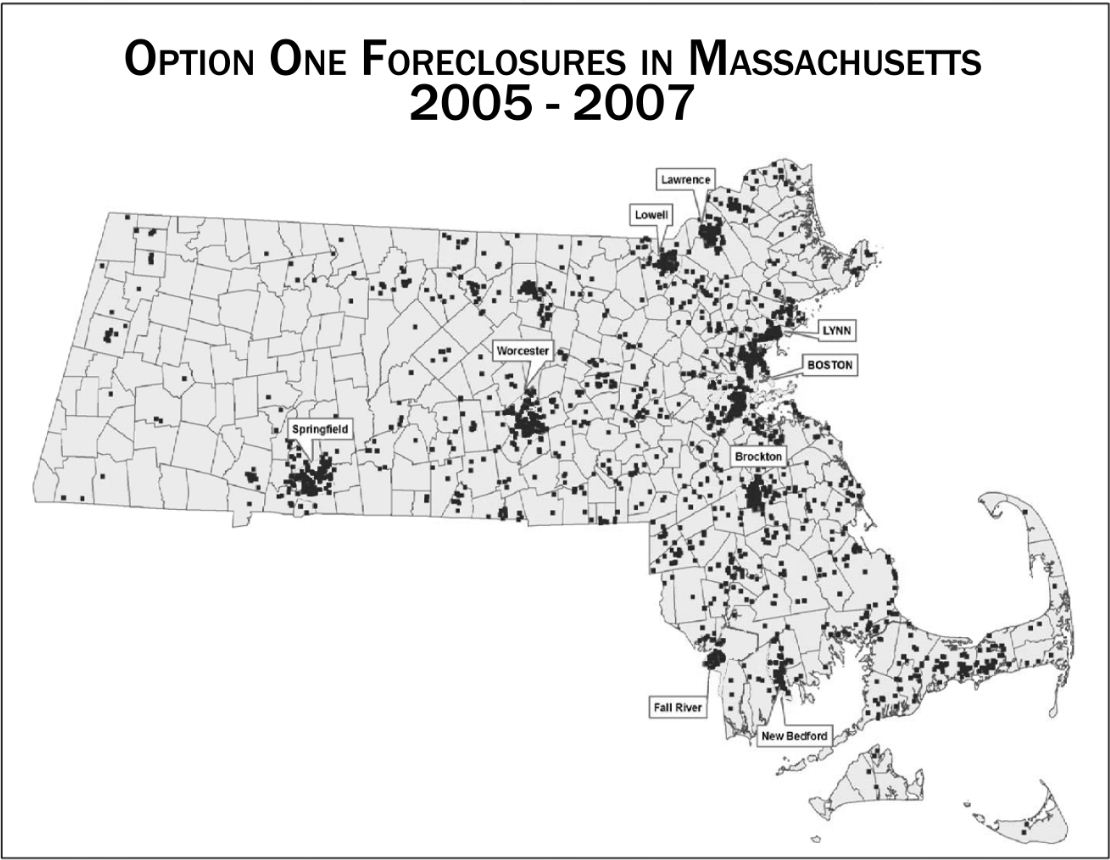Contact:
Media Inquiries:
Amie Breton
617-727-2543
MARTHA COAKLEY
ATTORNEY GENERAL
H&R BLOCK Mortgage Company Will Provide $125 Million in Loan Modifications and Restitution
Settlement With AG Coakley’s Office Resolves Allegations of Unfair Lending and Discriminatory Practices Against Thousands of Latino and African-American Borrowers by Major Subprime Lender
View and Listen to Press Conference Media:
The settlement with AG Coakley’s Office was filed late yesterday in Suffolk Superior Court. It requires the mortgage originator, a subsidiary of H&R Block, Inc., to pay $9.8 million to the Commonwealth and to direct American Home Mortgage Servicing, Inc. (“AHMSI”), the current servicer of approximately 5,500 Option One loans in Massachusetts, to institute an aggressive loan modification program that will provide an estimated $115 million in additional relief.
“Option One made loans that it knew were likely to fail and it discriminated against African-American and Latino borrowers,” Attorney General Coakley said. “Its blatant disregard for prudent underwriting standards contributed to the economic downturn we still find ourselves in today. Like our other cases against mortgage lenders and their Wall Street facilitators, this case holds this corporation accountable and provides much needed relief to homeowners.”
Option One originated approximately 32,400 loans in Massachusetts between 2004 and 2007, at which point the subprime market collapsed and it ceased its lending operations nationwide. Many of Option One’s loans featured multiple “risk features” such as:
- excessive debt-to-income ratios;
- high loan-to-value ratios;
- “stated income” or similar features that did not require borrowers to document their income or assets; and
- underwriting that qualified borrowers based on their ability to make payments at an introductory, or “teaser,” interest rate instead of their ability to pay beyond the two- or three-year introductory period.
The Attorney General’s lawsuit alleged that the risk-layered loans were unfair because they posed an excessive risk of default and foreclosure, as evidenced by their very high loan default rate. The lawsuit also asserted that Option One knew that loans with such risk characteristics were doomed to fail but that it originated them nonetheless in order to sell them to the secondary market and realize a profit.
The Attorney General also alleged that Option One’s discretionary pricing policies gave mortgage brokers free reign to charge excessive and unjustified fees, causing Black and Latino borrowers to pay more money, on average, for their loans. In 2008, when the lawsuit was filed, it was the first by a state’s Attorney General’s Office alleging civil rights claims against a subprime lender. Option One originated loans to approximately 4,400 Black and Latino borrowers between 2004 and 2007.
Loan Modifications
Distressed borrowers, who still have an Option One loan, are eligible for loan modifications that include significant write-downs of principal balances and reduction of interest rates, depending on the prevalence of certain risk features in the loan.
Many Massachusetts borrowers will receive loan modification relief that includes significant principal forgiveness. For borrowers struggling to make mortgage payments, who are 45 or more days delinquent on their loan, Option One will direct AHMSI, which services loans originated by Option One, to modify loans to achieve affordable monthly payments for borrowers. Generally, borrowers’ monthly payments will be reduced to between 31% and 36% of their monthly income.
Borrowers who received the riskiest loans, burdened with a high debt-to-income ratio and a high loan-to-value ratio, will be eligible for an even greater monthly payment reduction. The specifics of how much principal will be forgiven through each loan modification will depend on the characteristics of each loan at the time of origination. Borrowers who received the riskiest loans will be eligible to have the outstanding principal balance on their loan reduced to 100% of the current value of their home, which in many instances has experienced significant depreciation since the loan was made.
“The modification program will make it easier for homeowners to keep their homes and even begin to acquire some equity,” Attorney General Coakley said. “For several years now, many homeowners have been living underwater – owing more than their homes are worth. This modification program will change that situation for many Option One borrowers, and corrects the unreasonable risks they were exposed to when the loan was made.”
Payment
In addition to agreeing to implement the loan modification program, Option One will pay $9.8 million to the Commonwealth. The settlement includes $8 million in consumer relief, $1 million for fees and costs, and $800,000 in exchange for a release of civil penalties. The consumer relief will be used to rectify the negative impact of mortgage foreclosures and predatory and discriminatory lending practices, including providing direct restitution to Option One borrowers and implementing programs to mitigate the impact of the foreclosure crisis in Massachusetts.
AG Coakley’s Leadership During Lending Crisis
Attorney General Coakley is a national leader in bringing actions on behalf of homeowners against companies relating to their role in the subprime market place. Over the past three years, AG Coakley has obtained recoveries from Morgan Stanley, Goldman Sachs, Countrywide, and Fremont Investment & Loan, for their roles in the subprime lending crisis. As a result of these actions, her office has recovered more than $563 million in relief for investors and borrowers, helped keep more than 24,700 homeowners in their homes, and returned nearly $52 million in taxpayer funds back to the Commonwealth.
More information about AG Coakley’s work during the lending crisis can be found here.
The case was handled by Assistant Attorney General Gabriel O’Malley of Attorney General Coakley’s Consumer Protection Division and Jonathan Miller of Attorney General Coakley’s Civil Rights Division, with assistance from Chris Barry-Smith, Chief of the Public Protection and Advocacy Bureau, and Assistant Attorneys General Shannon Choy-Seymour, Patricio Rossi, Gabrielle Viator, David Monahan, John Stephan, and Gillian Feiner.
###########
 |
|||
|
|
|||
 |
|||